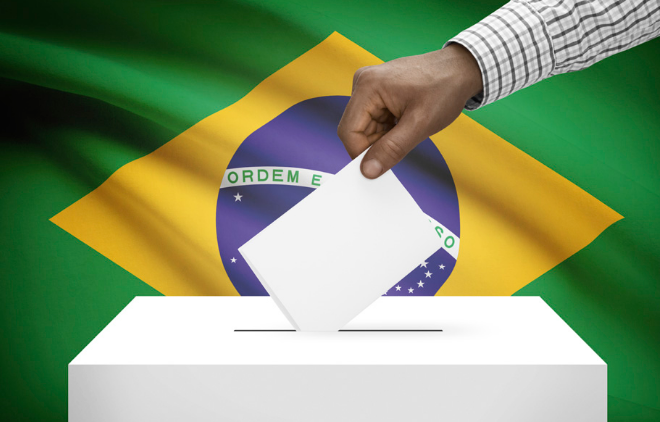
The Brazilian government is seeking to put the country's electoral system and petition on Ethereal. He wants to use this network to handle hundreds of millions of votes in the most transparent way.
In Brazil, the government allows more than 145 million voters nationwide to participate in deciding on a national issue. And the petition is seen as an important part of the political arena. On the other hand, Brazil's electoral system is seen as the basis for most of the country's political problems. However, over the past several decades, political analysts and analysts have questioned the logic of the system that has survived so much.

Even some people say Brazil's election system is "not real" and "not effective". There are dozens of political parties here and thousands of candidates await election.
Gabriel Barbosa, a research fellow at the Council on Hemispheric Affairs, said:
Redirected to Ethereum network
Joan Ian Wong from Quartz said Brazil's legislators were legislated by Congressman Ricardo Fernandes Paixão and University of Everton Fraga suggested moving plans to use the Bloclchain Ethereum network to store and process ballot. The proposal provides transparency and addresses a number of complex paperwork as well as the cost of the current electoral system.
To use the Blockchain system in processing petitions and ballots. They need to encrypt the votes on the Blockchain network, to ensure that the specific data can not be changed and not controlled by anyone.

Basically, processing petitions on the Ethereum network requires a smart contract and the system will behave similarly to other distributed applications that exist on the network. The Brazilian election system will act as a decentralized application with a standalone token. Used to handle every vote on Blockchain.
Henrique Costa, professor of law at the Universidade de Brasilia, said that in the past, the electoral system was not working effectively because there was a lack of a concrete platform to collect the signatures of the votes.
Specifically, he said:
In the Brazilian electoral system, every petition needs a signature of 1% of the population of the country, and should be presented in Congress. However, due to a lack of educational facilities and a platform for dealing with this problem, it is common for the group to file a petition seeking a lawmaker for approval.
As a result, the probability of a petition presented in the National Assembly is significantly reduced. Although many applications have collected enough signatures, there is still no opportunity to report.
Mobile application
Currently, the Brazilian government is gradually exploring the use of mobile applications based on the Blockchain Ethereum network. They wish through which citizens can submit petitions without spending too much time and money. As distributed applications can now operate on mobile phones, Brazil's electoral system and recommendations are likely to work in a similar way.
To minimize costs to the optimum level. The Brazilian government decided to use a system called Hash to combine all of the daily votes into one transaction. Then represent them on the main Blockchain Ethereum network.
Fraga, one of the project's top two consultants, said that integrating Ethereum into Brazil's inefficient electoral system was a good idea. They hoped the proposal was approved by Congress and was implemented as soon as possible.
He said:
Overall, this is a great application for Blockchain technology. In this way, it has allowed people to create and sign proposals in the most cost-effective manner, as well as time to collect full voter signatures. However, the only downside is that when people use them too much tea, easily lead to some frivolous, useless recommendations. After all, democracy is not easy either.
And what do you think of this move of Brazil? Should other countries go in this direction to increasingly modernize, technologically transform large, complex, political systems?
According to Cointelegraph & Bitcoinist
If you found any of this helpful please resteem it and let more people see it.



I hope voting worldwide moves to blockchain tech, so that corruption can not interrupt fair elections.